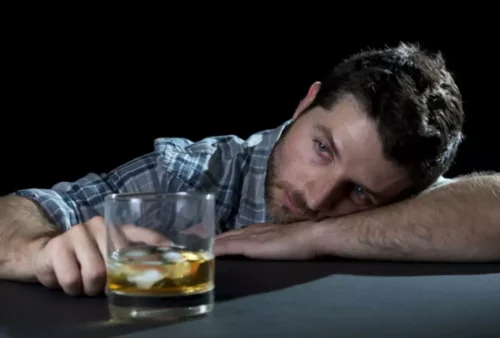What Does Powerlessness Mean in the 12 Steps?

Once you realize what you can and cannot change, you’re actually quite powerful. Powerlessness refers to a lack of control, and it helps you realize that there are things you can do to treat your addiction and create the life you want. Although you can’t change your addiction, you can learn how to live a sober life in recovery.
Careers – Join Our Team

Further, by accepting that there are things that we cannot control, including our drug use, we open ourselves up to receiving the help of others. Coming to this understanding will make you much more receptive to looking to sources outside yourself for recovery, such as your sponsor, your fellow group members, or your Higher Power. All of which makes you more receptive to learning and healing, which in turn makes it much easier to follow through with the remaining twelve steps of AA. You’ve worked your way through the entire process of growing and setting yourself up for success in sobriety, and now you have the opportunity to guide less experienced members through their own journey. Living with the principle of service means it’s your responsibility to help others as you were helped when you first started to work the 12 steps.
Footer Center Menu
When you’re able to accept the fatal progression of your alcohol use disorder, you can’t continue living in denial. You must first adopt attitudes and actions of being honest and sacrificing your time and energy to help yourself and other sufferers. Sometimes alcoholics keep their desire to drink secret because they’re ashamed or think that deciding to quit drinking means they aren’t powerless over alcohol supposed to be tempted. By admitting to at least one other person that you’re having a hard time with your sobriety in Step 1 of AA, you acknowledge that you are having difficulty maintaining control in regards to alcohol. You aren’t powerless when it comes to entering treatment or a recovery program. You aren’t powerless when it comes to choosing not to drink or use drugs.
Step 1: Honesty

Worldwide, alcoholics, addicts and treatment professionals embraced the Twelve Steps, and more than 35 million copies of AA’s Big Book have been distributed in over 70 languages. Families can also find support in 12 step based self-help in groups such as Al-anon and Nar-Anon. You may view alcoholism as a weakness of your character or will, but this view may hinder your ability to accept you have an alcohol use disorder. Your alcohol addiction is a physical compulsion beyond your control—a progressive illness that defies common sense.
- What you believe to be a Higher Power is a very personal thing.
- The 12 steps are a set of guiding principles that were developed by Alcoholics Anonymous (AA) as a way to help individuals struggling with addiction achieve and maintain sobriety.
- The 12 spiritual principles package these steps into digestible virtues and provide a road map to lifelong health and sobriety.
- These substances literally rewire brain function, making the need to satisfy a craving take prominence over everything else in life–regardless of the consequences.
It demonstrates the paradox of powerlessness and the role of surrender. Step 11 is about moving forward without losing track of a higher power. The continued awareness this demands makes it easy to pair the step with its accompanying principle. Love is empathy and compassion, and Step 8 asks you to make a list of everyone you’ve wronged in your journey to where you are now. You also have to be willing to make amends, which shows that you truly care for the people on your list.
She holds certifications in addiction and co-occurring disorder counseling and a bachelor’s degree in addiction studies, having graduated summa cum laude. The original version of the Twelve Steps and The Big Book makes numerous references to God, and this is largely because the steps were based on the six principles of The Oxford Group, a religious movement. The original references to God were quickly challenged in the early days of AA, and Bill W. Addressed those challenges by explaining that every member was welcome to interpret God to mean whatever higher power they chose to believe in while working the steps. Philosopher William James and Carl Jung a Swiss psychiatrist also played a part in supporting the concepts of a spiritual (not necessarily religious) experience as part of recovery. Before speaking, the participant is required to state his or her first name and say that he or she is an alcoholic.
Admitting Powerlessness Is a Form of Strength

But you may return at a later date when you are ready to take the first step and admit you are powerless over alcohol. The accountability and encouragement in meetings and therapy break the power of secrecy where addiction thrives. It helps foster accountability and is a profound place of support. What happens in a group of people admitting powerlessness over addiction is a power in itself.
- You are honest and strong enough to recognize that the only way you’ll win over alcohol is by not letting it be a part of you any longer.
- There’s a reason for that—being honest with yourself and others is key to living the kind of rich, self-assured, fulfilling life that we all want.
- A crucial part of completing AA Step one revolves around admitting powerlessness.
- It’s important to remember that recovery is a lifelong journey and the 12 steps are simply one part of that journey.
The Power of Powerlessness
- By practicing abstinence, alcohol cannot wield its power over you.
- Admitting powerlessness means shattering this false belief.
- This could mean God, a general belief system or the recovery community itself.

